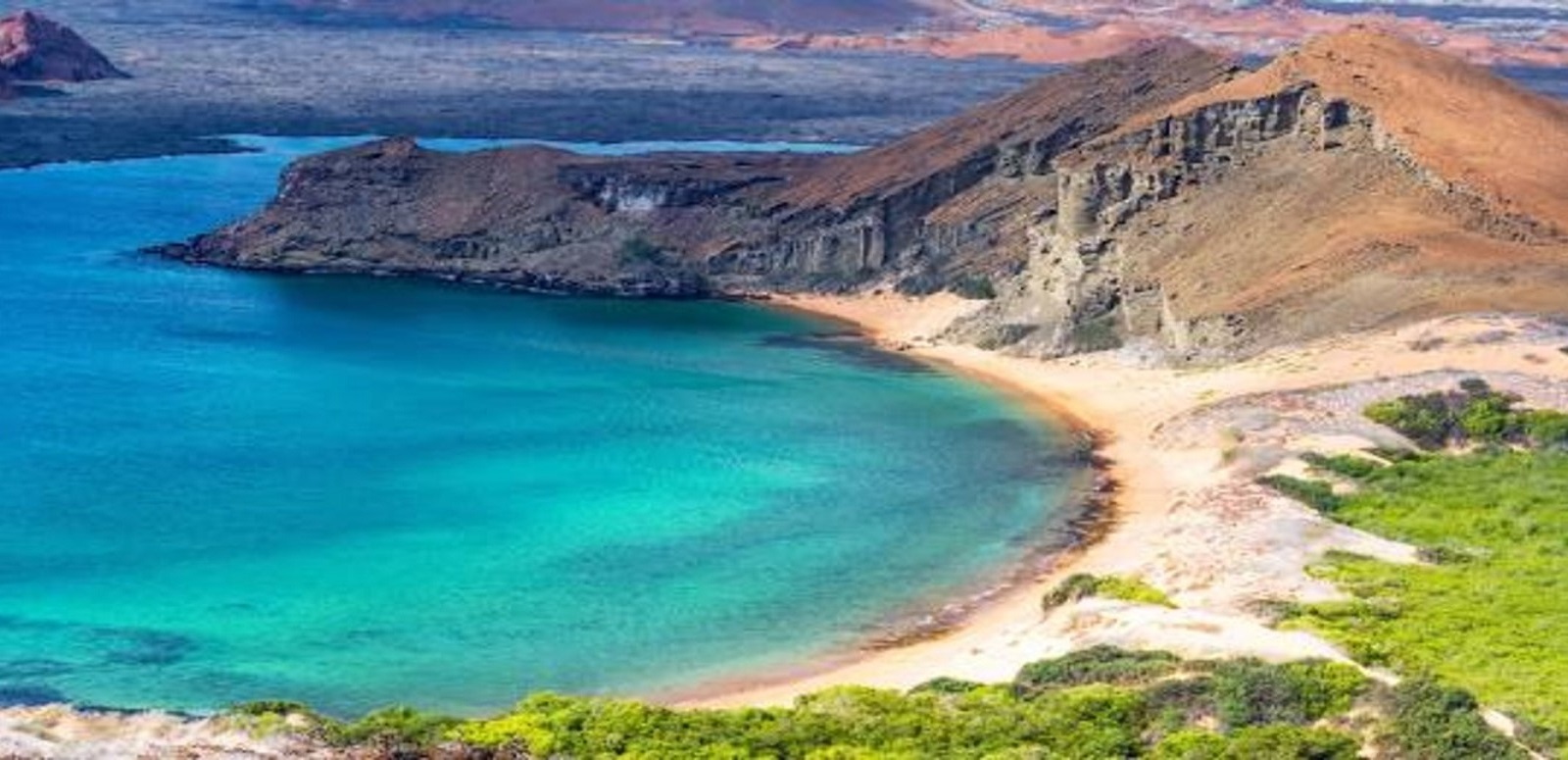Embark on an 8-day exploration of the central, northern, and southern Galapagos Islands aboard the Passion Yacht. This itinerary offers remarkable wildlife experiences, including encounters with Galapagos penguins, sea lions, and the famous blue-footed boobies. Discover volcanic landscapes, pristine beaches, and take part in activities like hiking, snorkeling, and birdwatching.
Santa Cruz Island is the largest island in the Central Islands. It has the most human settlements, Puerto Ayora, and many of its tourist attractions.
Caleta Tortuga: Turtle Cove, a mangrove lagoon in Santa Cruz is an excellent example of the way mangroves change marine environments to produce a unique and rich habitat. Sea turtles, rays and sharks will be visible.
Meal: Dinner
Tower Island (Genovesa), a flat eroded volcanic island with a natural harbour, is the caldera submerged of this volcanic isle.
Darwin Bay: This area is dominated by steep cliffs. The area hosts thousands of frigate bird, Noddy’s terns (lava gulls), red-footed boobies, Noddy terns (tropicbirds), doves, Storm petrels, and Darwin finches.
El Barranco: This site has a high chance of seeing “Short-eared Owl”. On the boat rides, you can see fur seals as well as several seabird species.
Meal: Breakfast, lunch and Dinner
Sombrero Chino: Sombrero Chino, a small island of volcanic origin located just southeast of Santiago. Named after its shape, the island is also known as Sombrero Chino. The fauna includes the Galapagos Penguin, Sea Lions, and Marine Iguanas.
Bartolome Island: A short hike takes you to Bartolome’s highest point for an amazing view. Around Pinnacle Rock, you can see sea lions or penguins. The sandy beach is great for swimming and snorkeling.
Meal: Breakfast, lunch and Dinner
Rabida Island is a tiny island that has a beach with dark coral red sand. The lagoon, with its flamingos, the pelican breeding site, the sea lion bachelor colonies, and the snorkeling area at the end are all highlights.
Santa Cruz Island: Dragon Hill is situated on the northwest side of Santa Cruz Island. Highlights include the small lagoons with Flamingos and Palo Santo Trees. Opuntia Cactus is also present. Land Iguanas are also present.
Meal: Breakfast, lunch and Dinner
The Highlands of Santa Cruz. Galapagos Giant Tortoises are seen wild on the Highlands of Santa Cruz.
Charles Darwin Station: Visit Charles Darwin Station, a National Park Information Centre and research facility. Charles Darwin Station is home to a land iguana and giant tortoise breeding program.
Meal: Breakfast, lunch and Dinner
Hood Island is located in Espanola and is one of the Southern Islands. It is also the oldest island. A unique variety of endemic plants and animals evolved in this remote area.
Punta Suarez: There is a wide variety of wildlife in Punta Suarez. The blowhole is located along the cliff where the seawater can be forced up to 20m. Highlights include the Waved Albatross that is only found in Hood (April to December), Galapagos Hawks and blue-footed, Nazca, and Espanola Lava Lizards.
Gardner Bay is located in the northeastern part of the island. It has an extensive white-sanded beach that’s home to sea lion colonies.
Islote Gardner and Islote Osborn are two snorkeling spots where you can see a variety of tropical fishes, turtles and reef sharks.
Meal: Breakfast, lunch and Dinner
Santa Fe Island is 24km2. Santa Fe visitor center is situated on the north-east end of the Island. Santa Fe’s land iguanas are one of the highlights. Other attractions include a sea lion colony and mockingbirds.
South Plaza Island: Plazas is made up of two small islands, which were raised from the ocean and separated by a narrow channel. South Plazas is the only island with a visitor’s site. Highlights include the tall Opuntia Cactus and land and marine Iguanas. Also, there is a large rocky cliff which overlooks open ocean and serves as a nesting area for red-billed tropical birds, gulls and seal lion bachelor colonies.
Meal: Breakfast, lunch and Dinner
Santa Cruz Island
Los Gemelos: These two sunken craters, surrounded by endemic Scalecia trees, are also known as The Twins. These craters are beautiful, and they’re home to finches and yellow warblers.
Baltra Island: Return flight to Quito
Meal: Breakfast
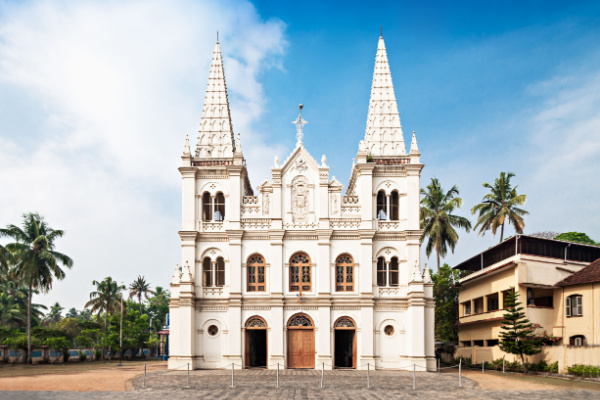
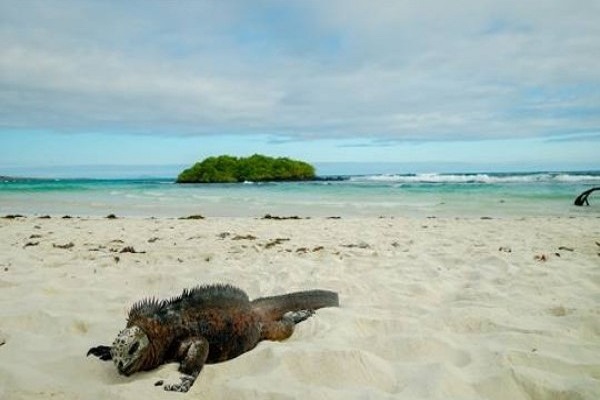
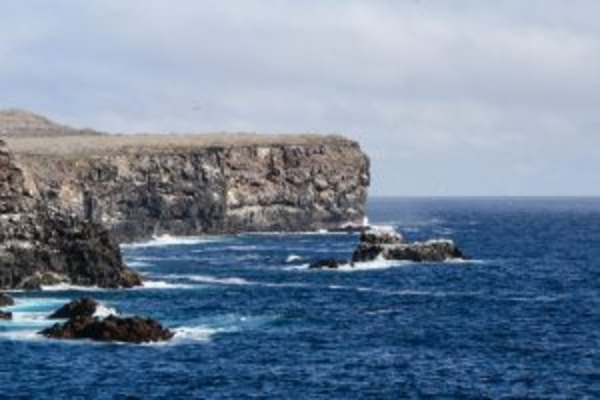
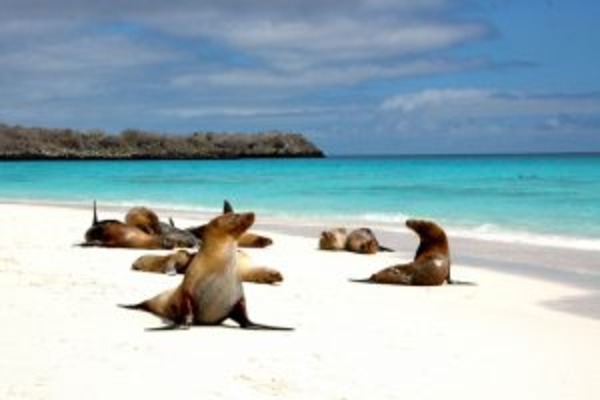
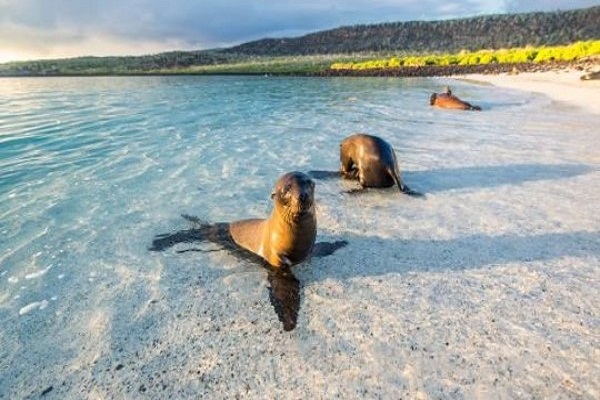
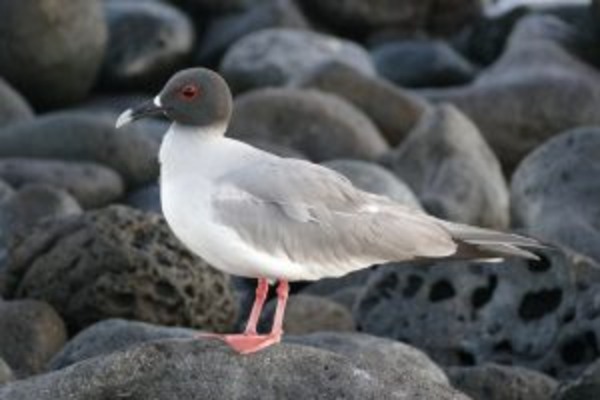
All meals and accommodation in double cabins while on board, welcome cocktail, all excursions and activities while on board, wetsuits, snorkeling gear, use of kayaks, bilingual naturalist guide.
Flights to and from Galapagos, Galapagos National Park entrance fee, Migratory card fee, any extra beverages on board (anything in a bottle), tips, personal expenses.
Accommodation
Accommodation onboard the ship.
Highlights
Snorkeling with penguins and sea lions at Pinnacle Rock.
Hiking to stunning viewpoints and volcanic landscapes.
Wildlife: giant tortoises, red-footed boobies, waved albatrosses.
Travel Tips
Pay attention to the meeting details provided upon arrival in Galapagos.
Wear comfortable clothing suitable for hot weather. Remember that Galapagos has a humid climate and its ambient temperature is above 22 degrees Celsius.
Take your identity card or passport with you, especially on your transfers in and out of the Galapagos Islands.
Remember that traveling by cruise ship can cause seasickness, we recommend that you take sea sickness pills with you. These can only be taken once a day.
Be aware of the environmental impact and follow the national park’s rules on conservation and respect for nature.
Weather Preparedness
It is advisable to bring a windbreaker jacket for when you want to enjoy the best view of the Galapagos Islands in our open air area.
Fitness Requirements
Within our excursions or water activities the effort is minimal compared to the great experience you will have in the Galapagos Islands.
Rates are based on 3 star hotels, in case of upgrade please let us know enable quote accordingly.
All prices are indicative and starting from prices. Final price will be available based on availability and dates of travel.

